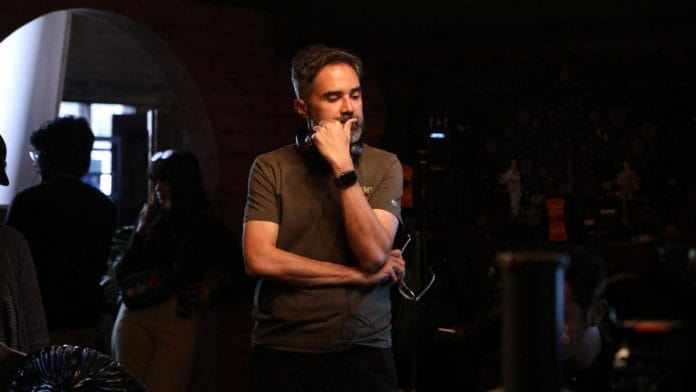New Delhi: In Paatal Lok Season 2, the home of a Marwari businessman in Nagaland has just been attacked. His brother is dead. The local police don’t care. The grieving man, eyes wet, says: “My father came here in ’67. Both Dheeraj and I were born here. It’s been fifty years but we’re still considered outsiders.”
For Guwahati-born-and-raised show creator Sudip Sharma, the line was personal. He too comes from a Marwari family that settled in the Northeast.
“One of my uncles was shot down by militants. My best friend’s family was gunned down for ignoring an extortion letter,” he said, recalling his childhood in Assam during the peak of the insurgency. His grandfather had moved the family to Guwahati in the 1960s. But by the 1990s, as the United Liberation Front of Assam (ULFA) began targeting Hindi-speakers, they packed up and left.
Yet, though Sharma is clear-eyed about the violence, there’s a tenderness beneath it. He doesn’t romanticise the Northeast, nor does he flatten it into trauma. That unflinching but respectful gaze defines his storytelling, whether in Paatal Lok or Kohrra.
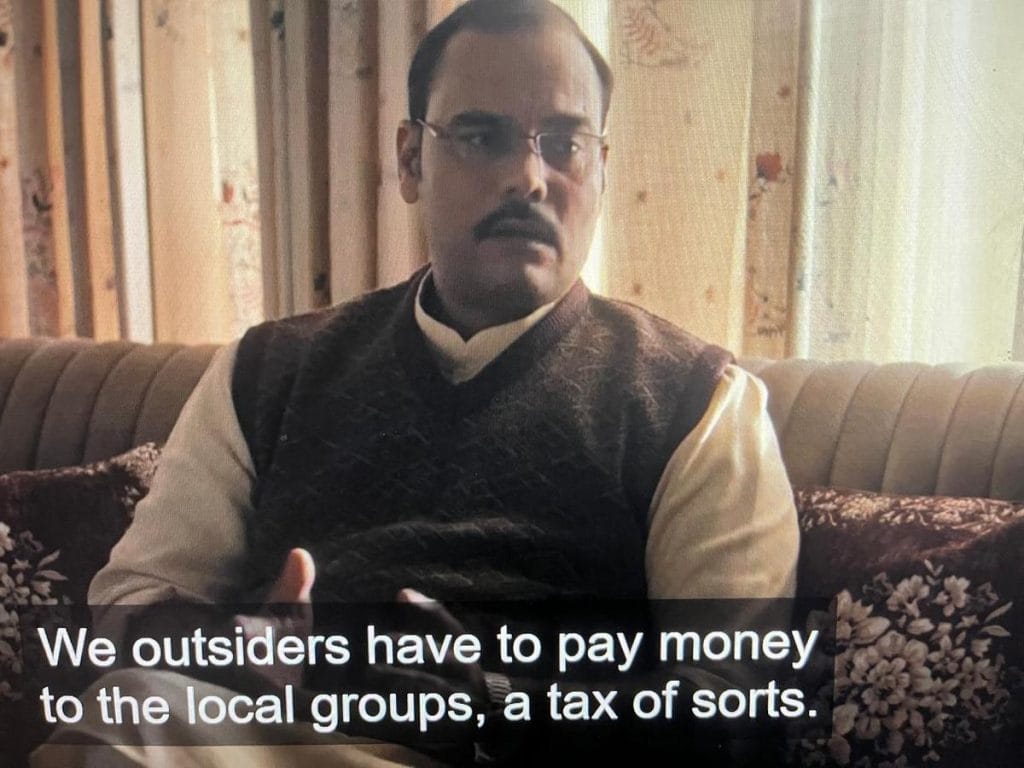
Sharma juggles multiple roles—screenwriter, producer, showrunner, and director—and his shows have done what few manage: won over both critics and audiences. He’s now the king of desi noir with heart.
Paatal Lok Season 2 clocked 7.2 million views in its first week on Prime Video. From social media threads to academic panels, viewers are still dissecting its details—from dialects and funeral rites to casting and sound. It’s become a benchmark for how Hindi-language shows can represent the Northeast with nuance.
“The plunge into a region that is rarely, if ever, depicted with veracity and empathy by makers of Hindi movies and web shows, is a worthwhile risk. It pays off,” wrote senior film critic Saibal Chatterjee in his review of the season.
In a streaming landscape crowded with stylised violence and formulaic crime lords, Sharma brings in cops and villains who are complex, human, and anything but generic. Even the places they come from—Nagaland, Punjab, Delhi’s underbelly—are given depth.
Paatal Lok Season 1 (2020) became a template of sorts for how cops would be portrayed on Indian OTT platforms. It gave actor Jaideep Ahlawat his breakout role as a Haryanvi policeman navigating ‘Jamnapaar Delhi’. Three years later, Sharma was back with Netflix’s Kohrra, a brooding procedural set in Punjab that completely diverged from the mustard fields-laden stereotype of the state. Suvinder Vicky as Sub-inspector Balbir Singh was tormented, empathetic, and cynical all at once.
Even his villains don’t play by the genre’s usual rules. Hathoda Tyagi (Abhishek Banerjee) in Paatal Lok Season 1, Daniel and Uncle Ken (Prashant Tamang and Jahnu Barua) in Season 2, and Liam in Kohrra—who slits his lover’s throat—aren’t cartoonishly evil. They’re products of caste, class, patriarchy, repressed desire.
Now, Sharma is finishing the second season of Kohrra, slated for release this year. There’s a new cop, a new case, but the same guiding principle: violence that isn’t voyeuristic, but an insight into the universe his characters inhabit.
“I am not a fan of violence for the sake of violence,” Sharma said. “There are consequences of that violence, whatever they may be.”
Also Read: Paatal Lok season 2 gets Nagaland right. Doesn’t spoon-feed Northeast to Hindi viewers
Sharma is obsessive about getting the smallest details right. Whether it’s a Naga funeral or the near-feral sex on a field that opens Kohrra, nothing on screen is accidental. He listens and observes before saying anything, both in his life and in his work.
For him, good, gritty screenwriting begins with granular research. While working on Paatal Lok Season 1 and Kohrra, he and his co-writers visited police stations and looked at every minute detail—where the files were kept, what the lock-ups looked like, how the cops walked, talked, and drank their tea. For Paatal Lok Season 2, that same rigour extended to cultural nuance and casting.
Sharma said he always felt that the Hindi-speaking, Haryanvi inspector Hathiram was the perfect vehicle to enter the Northeast. But the lens he used shifted between outsider and insider.
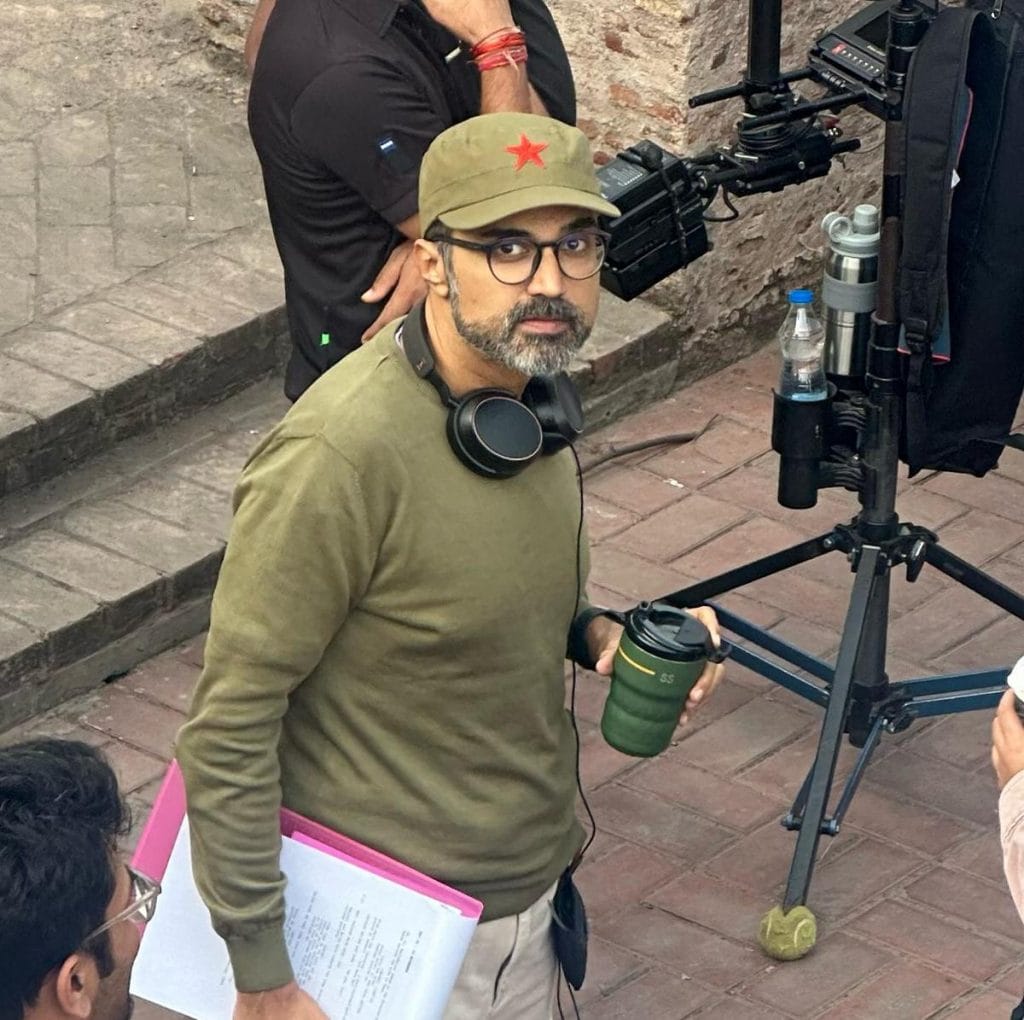
“I don’t like using locations as backdrops. With the Northeast, it was also a personal responsibility of making it well, he said. Then he wryly added: “My friends would not leave me if I messed up.” So he brought in researcher Anungla Longkumer to help build the world from within.
It worked. Actor Merenla Imsong, who plays Rose Lizo, said the authenticity felt so rare, she half-suspected divine intervention.
“One thing that all the Naga actors will never forget is the respect he showed us and our land,” she added. “He made us all feel included in the telling of this story. People kept asking how he captured the essence of Nagaland so well. I would tell them that he sacrificed a mithun to our ancestors before writing the script. I was joking, but I have my suspicions now.”
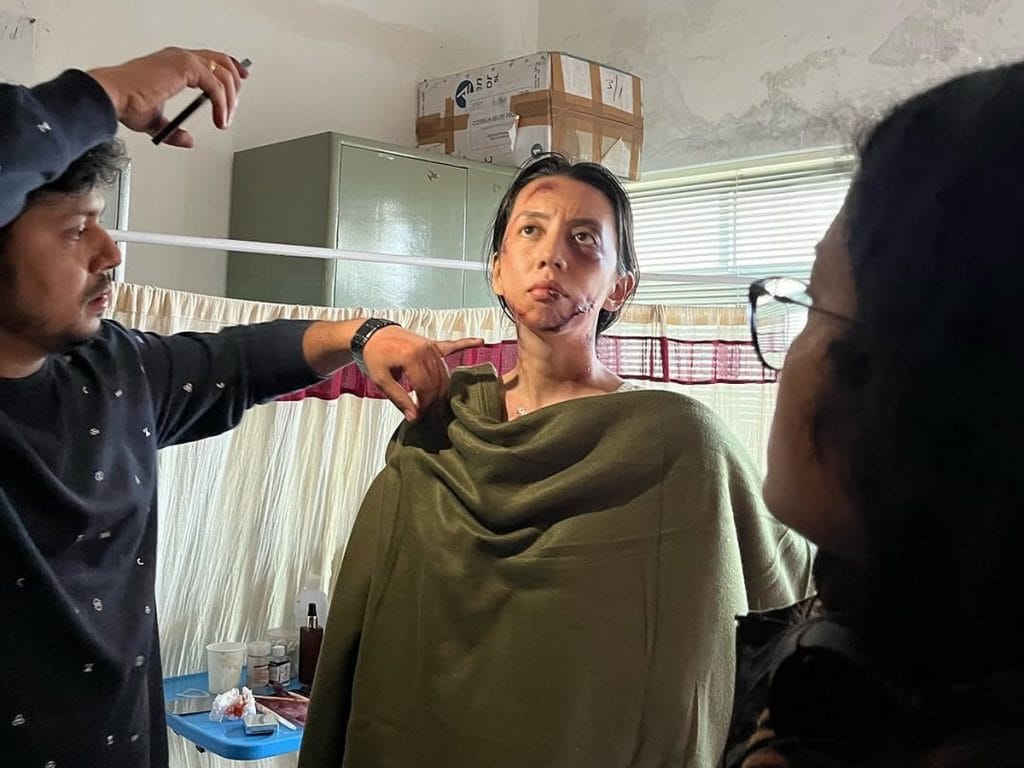
Some cast members only signed on because of the writing—like 12-time National Award-winning filmmaker Jahnu Barua, who made his acting debut in the show.
“People have biases against the region. And I refuse roles for how they try to have us only in comic roles. But once I read the script, I was immediately convinced,” said Barua.
Sharma, after all, was not really an ‘outsider’.
A reluctant MBA
Of growing up in Guwahati, Sharma has many fond memories—cycling to Dighalipukhuri for street food, playing cricket with friends, watching movies at the Apsara single-screen cinema, and studying at Happy Child High School, one of the city’s best schools.
He lived in the Tokobari and Chatribari, neighbourhoods, which had a strong Marwari presence and where families like his had built a life over generations.
But there was a dark side too.
“Once we were playing cricket when there was a bandh called by either the ULFA or AASU, and we were picked up by police,” said Sharma.
His father was once a Hindi lecturer in Guwahati Commerce College, but then retrained as a lawyer and worked as a tax consultant.
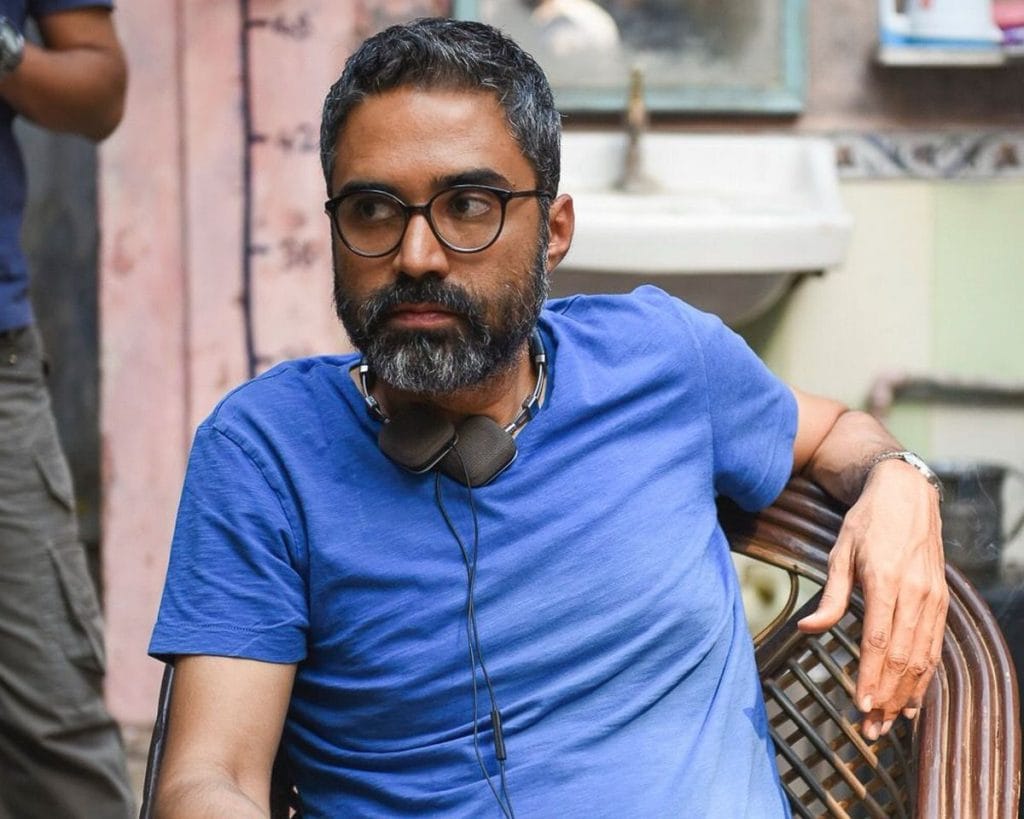
“There was a period of insurgency and retaliatory army action when my father would be late from work, and he would mention people who received extortion letters,” recalled Sharma.
After school, he left Guwahati to study at Delhi University and then cleared the CAT to get into the prestigious IIM Ahmedabad.
But the hyper-competitive culture was overwhelming. Sharma frequently cried himself to sleep and even tried to run away once. A senior stopped him at the gate.
Relief came in the form of movies, ‘hidden’ away in the campus computer labs.
“The computers were all interconnected and people would download and store movies, and anyone could watch them. That became my first step into the world of movies, across languages and geographical locations,” said Sharma.
But it would be a while before he’d make any of his own.
Also Read: Assamese filmmaker Jahnu Barua lights up Paatal Lok. But he’s not ready for the spotlight
NH10 and Udta Punjab to Paatal Lok
Armed with a much-coveted MBA, Sharma knew he wanted to exit the corporate rat race even before he entered it. But rent and bills had to be paid. So he took up a job in sales and marketing at Coca-Cola.
There, by a stroke of luck, he met another MBA, Puneet Krishna, who would later co-write the web series Mirzapur and Tribhuvan Mishra CA Topper. The two bonded over their shared frustration and dreams of making films. They pushed each other to start writing seriously.
It was 2005 when Sharma made the decision: he would become a screenwriter. Over the next few years, he worked on several scripts, most of them shelved, forgotten, or never made. In 2011, he finished writing NH10, a dark thriller about a road trip gone wrong. But getting it off the ground wasn’t easy. It took four years before actors and producers came on board.
Like the characters he’s now known for creating, Sharma had to make his own long, uncertain journey before finding his way forward.
With a female lead in the screenplay, he and director Navdeep Singh struggled to find backers and actors. They eventually cast Freida Pinto and Rajkummar Rao, but ten days before going on the floors, the shoot was halted.
That’s when Anurag Kashyap stepped in since he saw merit in the script. Vikramaditya Motwane, who co-founded Phantom Films with Kashyap, also agreed.
“Anurag convinced Anushka to read the script, who liked it and even came on board as an actor and producer with Clean Slate Filmz,” said Sharma.

It was a period of transition, and story-backed roles for women were finally getting attention—Queen (2013) had worked and Piku (2015) was on its way. NH10 released in 2015 and became a sleeper hit. Sharma’s career was finally in motion. He followed it up with Udta Punjab (2016), an edgy ensemble drama about addiction, and Sonchiriya (2019), an action film set in the ravines of Chambal. His writing was consistently gritty, political, and unsentimental. While Udta Punjab was a critical and commercial success, Sonchiriya faltered at the box office but found its audience on streaming.
“It really felt like the industry was changing with some films that were coming out, and we got very excited. But that did not last, and Covid too came. Then it was the era of OTT,” said Sharma.
He hadn’t seen many web series before saying yes to the first season of Paatal Lok. But, as a writer, he knew he was made for the format.
“I watched The Wire, and it made me realise that I would never be able to do in cinema what I can do in long-form—from creating a certain universe to writing in-depth characters,” said Sharma.
Knowing when the story’s over
Sharma isn’t interested in churning out season after season for the sake of it. He doesn’t chase spinoffs, sequels, or shared universes unless there’s a new story worth telling. It’s a rare stance in the world of repeating formulas, whether in film sequels or multi-season web shows. If a character’s arc is done, he lets them go, even if they’re popular.
In Paatal Lok 2, he kills off the much-loved Ansari (Ishwak Singh) with a sniper’s bullet.
“We had to keep on raising the emotional stakes and also the dangers for Hathiram,” said Sharma. “But with SI Balbir Singh in Kohrra, it felt there was nothing more to add. So we have a different cop this season.”
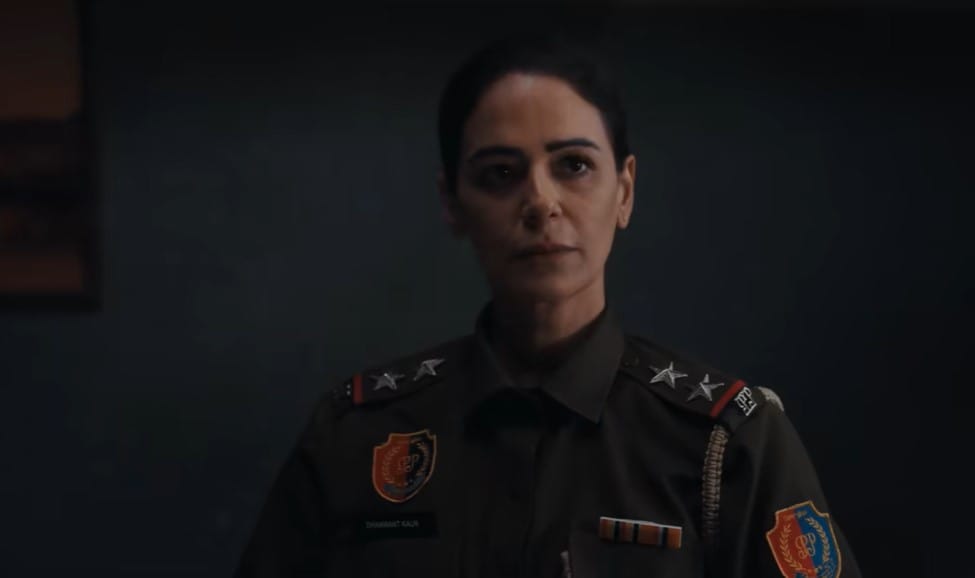
Despite his many creative hats, Sharma sticks to an almost mundane 9-5 routine.
“I like to maintain a routine of getting up really early in the morning and starting the day with meditation, followed by a run,” he said.
He loves books, but his reading list skews away from the crime genre. He’s currently re-reading a book of poems by Vinod Kumar Shukla, one of his favourite Hindi writers, and a novel by Nirmal Verma.
Right now, Sharma is deep in the edit room for Kohrra Season 2, which he’s directed along with Faisal Rahman and co-written with Diggi Sisodia and Gunjit Chopra. The new season, again set in Punjab, introduces a new female cop played by Mona Singh. Barun Sobti returns as assistant sub-inspector Garundi.
“I want each season to be a separate story, whatever the show is,” said Sharma. “With Garundi, there was more to show, like with Jaideep’s character. I did not want to continue with a character or season for the sake of it.”
(Edited by Asavari Singh)



